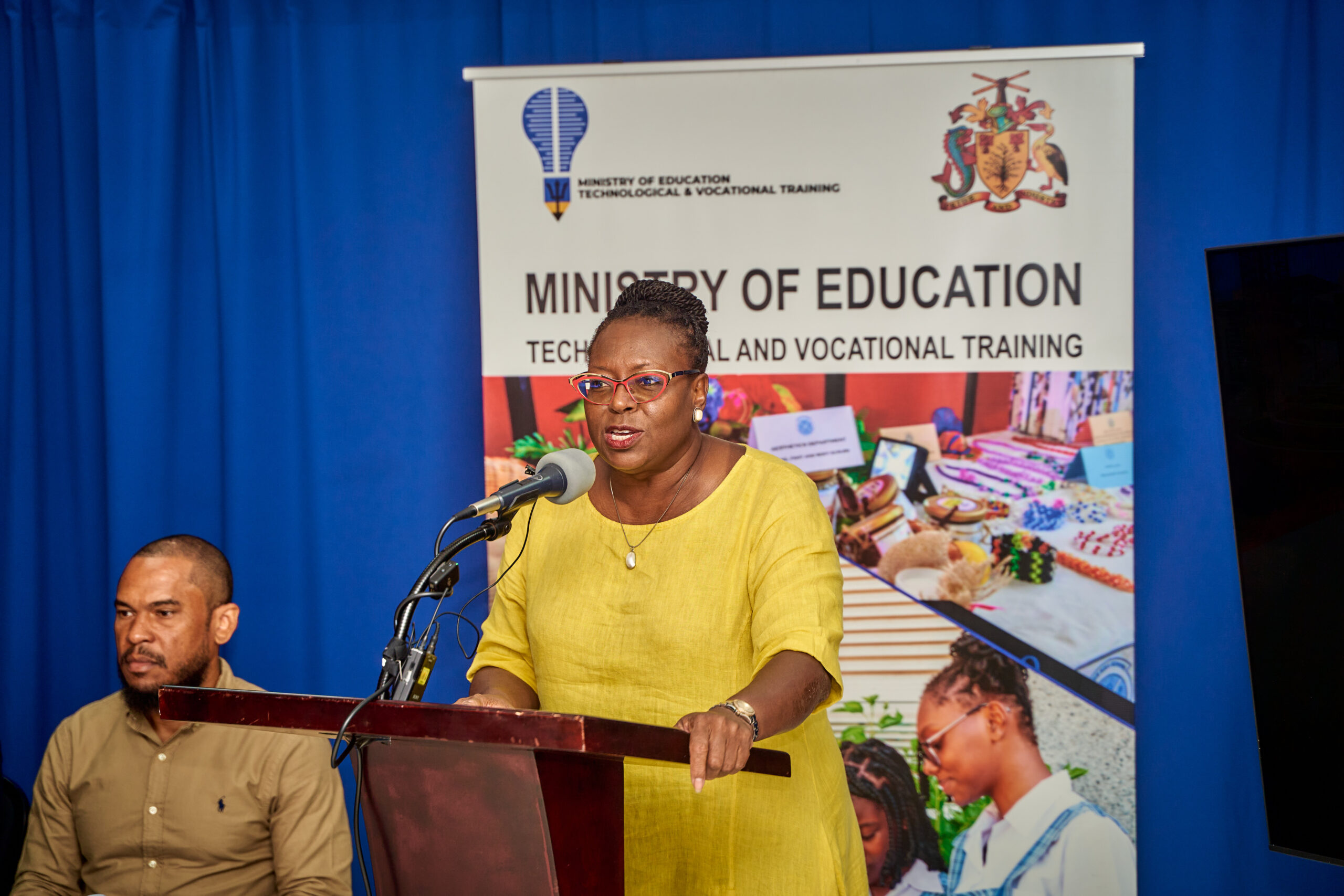Barbados Launches Modern School Infrastructure Design Competition for Sustainable and Creative Educational Spaces

March 8, 2024
"Join the Modern School Infrastructure Design Competition in Barbados to revamp school buildings, creating innovative and sustainable learning environments. Submit your architectural concepts for a chance to shape the future of education."
Steps are being taken to fundamentally reinvent the appearance, structure, and functionality of the island’s schools, said Minister of Education Kay McConney as she announced a Modern School Infrastructure Design Competition, aimed at giving a facelift to buildings from nursery through to secondary levels.
McConney told the launch on Thursday that the contest is “one of the most consequential transformations of infrastructure in the educational system”. She called on architects to come on board and submit their creative takes on what a modern school in Barbados should look like, as a multifunctional learning space.
“It is exciting that this design competition will provide us with creative and innovative designs and concepts for schools – for modern nursery, primary, secondary, and special needs school infrastructure. The intention is that we will be designing sustainable school infrastructure for tomorrow and we will be integrating creativity and collaborating across different perspectives, ultimately enabling us to attain our objectives under education transformation,” the education minister said.
She added: “Architects, we expect you to submit building design concepts that feature better environmental performance, allowing for more naturally ventilated spaces, and optimising shade and wind flow. We want you to incorporate energy-efficient solutions, and to design infrastructure and spaces that are accessible and can effectively support the needs of our learners, and the special educational needs of those persons with disabilities. We want you to think water conservation, we want you to think of how you can use the indoor and outdoor spaces.”
Chief Education Officer Dr Ramona Archer-Bradshaw said among the key judging points will be the safety of the buildings and their use of green spaces.
“Modern school infrastructure must withstand natural disasters, secure against intruders, and provide emergency exits. The design should also feature well-ventilated spaces since they promote health and wellness. There must be adequate sanitation facilities, proper waste management and access to clean water,” she said.
“It is anticipated that they will engage in the maintenance of solar panels, be engaged in water harvesting activities [and] recycling initiatives, and will be on a quest to make energy efficiency a reality in their schools. There is a need for the creation of green spaces – for example, gardens, trees, and outdoor classrooms – that allow our students to connect with nature. These areas will serve as living laboratories, teaching ecological balance and nurturing environmental consciousness. As we reimagine education, we envision school buildings that are not just static structures, but that can be dynamic catalysts for growth and the development of our children.”
Director of the Natural Heritage Department Steve Devonish, who heads the competition evaluation committee, said applicants were encouraged to not limit themselves in their designs and to think outside the box.
“In the case of the nursery schools, we have asked people to work with a canvas of two acres. In the case of the primary schools, the canvas has increased to six acres; for the secondary school, 15 acres; and for the special needs, five acres. We do not expect that every architect and every person will submit the same design; we want to call on people’s imaginations, for them to be creative in what we call greenfield site architectural exploration,” he said.
The competition is open to all architects registered to practise in Barbados. Submissions may be by a group or individuals and participants may submit for one or all four school types, Devonish explained.
President of the Barbados Institute of Architects Kevin Browne welcomed the staging of the competition and said that schools have long needed a facelift.
He said: “We need spaces that are dynamic, spaces that are responsive, and spaces that are not static. I believe that we have the talent on these shores to provide the government with some really good ideas and concepts, where they can then map these concepts onto some of the existing and old infrastructure in our island that so badly needs an upgrade.”
The prize for the top three finalists in each of the four categories – nursey, primary, seconday and special needs – will be $20 000. Applications close on May 10 and more information is available on the ministry’s website, mes.gov.bb.
(SB)


